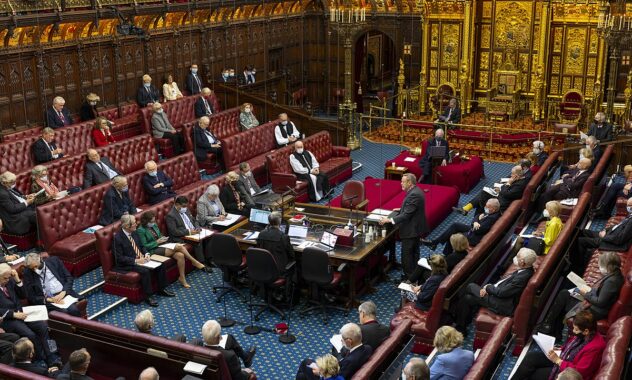Minimum Service Levels consultation outcomes: passenger rail, ambulance services and border security
Government respond to MSL consulations

The Government have published responses to three consultations related to Minimum Service levels in the event of a strike.
1. Minimum service levels for passenger rail: government response and policy approach
Foreword from the Secretary of State for Transport
The railways have been part of the fabric of our nation for nearly 200 years. They enable millions every day to access vital services like education and healthcare, visit family and provide choice about where to live and work. They contribute to the growth of the economy, transporting goods up and down the country, creating jobs and supporting our ambitions towards a greener future.
However, recent industrial action across the rail sector has demonstrated that, too often, hardworking people have suffered due to persistent disruption caused by strikes.
This government recognises the importance, within industrial relations, of the ability of unions to take strike action. And we are committed to ensuring this is protected. But, we are clear that this should not be at the expense of members of the public – who deserve a reliable, consistent service that allows them to work, to learn, and to get on with their lives.
Time and again, this government has shown that it won’t shirk the long-term decisions to secure a brighter future. When tough choices need to be made, we’ll make them based on the needs and priorities of the British public. So, on industrial action, we’ll not accept the status quo. We’ll strike a fair balance between the ability to strike and the rights and freedoms of the wider public.
This is why, in February 2023, we launched a consultation on minimum service levels for passenger rail. We wanted to hear the views of the public, trade unions and key stakeholders from the rail sector and beyond. And we wanted to develop a more detailed understanding of the impact of strikes, and how minimum service levels might be applied to reduce disruption.
This report summarises the responses we received during that consultation and sets out our next steps in bringing forward minimum service levels for passenger rail. We are enormously grateful for the invaluable insight and expertise brought by the public and stakeholders throughout the development of the policy.
The Rt Hon Mark Harper MP, Secretary of State for Transport
Read the consultation outcome here.
2. Equality impact assessment – minimum service levels in event of strike action: ambulance services
Introduction
The general equality duty that is set out in the Equality Act 2010 requires public authorities, in the exercise of their functions, to have due regard to the need to:
- eliminate unlawful discrimination, harassment and victimisation and other conduct prohibited by the act
- advance equality of opportunity between people who share a protected characteristic and those who do not
- foster good relations between people who share a protected characteristic and those who do not
The general equality duty does not specify how public authorities should analyse the effect of their existing and new policies and practices on equality but doing so is an important part of complying with the general equality duty.
Read the consultation outcome here.
3. Government response to consultation on border security: minimum service levels during strike action
Foreword
The government is focused on making the hard but necessary long-term decisions to deliver the change that the country needs to put the UK on the right path for the future.
The ability for staff to take strike action is an integral part of industrial relations. However, the security of our borders is something we cannot compromise. We must also consider the disruption caused to – and the costs incurred by – passengers and businesses, who expect essential services they pay for to be there when they need them.
We must also consider the impact on those called in to cover for staff who are going on strike, including the impact on members of our armed forces, who have commendably stepped up to fill vital roles during recent industrial action. It would be irresponsible to rely on such short-term solutions to protect our national security.
Minimum service levels exist in a range of countries within the EU, and globally, as a legitimate mechanism to balance the ability to strike with the needs of the public. Outright bans on striking are usually in place where border security is provided by the police or by members of the armed forces. The exact picture is complex and differs from country to country. Minimum service levels are generally negotiated between employers and unions and can also cover issues like the notice period that has to be given before industrial action takes place.
These new border security minimum service levels will ensure a fair balance between delivering the best possible service to the travelling public, maintaining a secure border and the ability of workers to strike. Unions will be required to work with the government to make sure minimum border security services are met on strike days, to keep our country safe.
Read the consultation outcome here.







